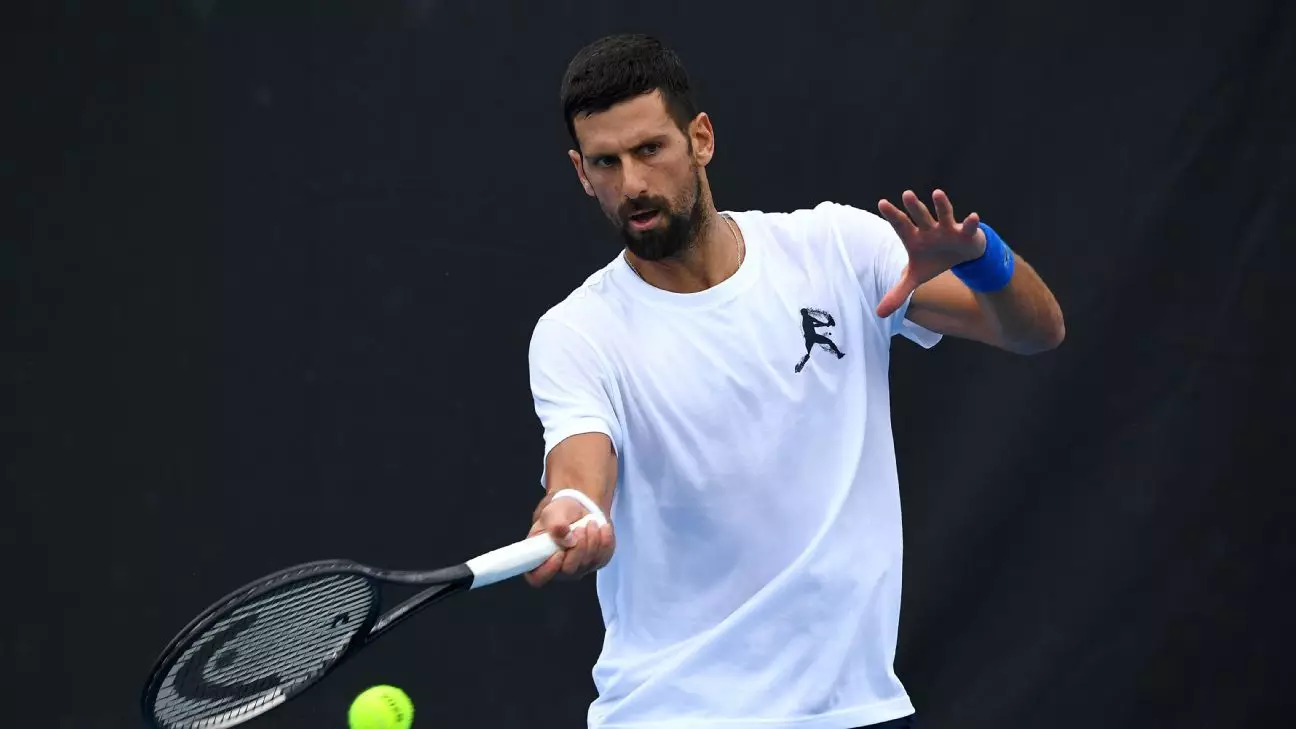As the tennis world gears up for the highly anticipated Australian Open, former world No. 1 Novak Djokovic takes center stage, not only for his aim at a record 25th Grand Slam title but also for his candid remarks regarding the integrity of the sport. With the recent doping cases involving notable players such as Jannik Sinner and Iga Swiatek, Djokovic has emerged as a vocal critic of the sport’s governing bodies, expressing frustration over perceived inconsistencies and a lack of transparency in the handling of doping allegations.
After undergoing knee surgery earlier this year, Djokovic has made a remarkable comeback, reaching the Wimbledon final and reestablishing himself as a formidable presence on the ATP tour. His participation in the Brisbane International marks his first return to this event since 2009, a move that underscores his commitment to reclaiming his stature in the sport. Additionally, teaming up with fan-favorite Nick Kyrgios for the doubles event highlights Djokovic’s willingness to engage in collaborative play, a contrast to the often solitary nature of elite tennis competition.
However, as Djokovic sets his sights on Melbourne Park, the former champion is grappling with issues that extend beyond his performance on the court. His vocal criticism of the tennis authorities shines a light on deeper systemic flaws that have characterized the sport for years, particularly concerning the enforcement of doping regulations.
During a press conference in Brisbane, Djokovic did not hold back as he addressed the ongoing doping case involving rising star Jannik Sinner. His frustration stems not just from the specifics of Sinner’s situation but from a broader sense of injustice that permeates the sport. “We’ve had plenty of players in the past and currently under suspension for not even testing positive to banned substances,” Djokovic remarked, underscoring the disparity in how players are treated based on their ranking and backing.
The International Tennis Integrity Agency (ITIA) has found itself in the crosshairs of Djokovic’s critique, as Sinner faces scrutiny for testing positive for an anabolic steroid earlier this year. While he avoided a suspension, the case has provoked questions about fairness, particularly as lesser-ranked players often endure prolonged periods in limbo while awaiting their case outcomes. This inconsistency not only impacts the careers of those individuals but also threatens the integrity of the sport itself.
Djokovic’s commentary raises essential concerns about the lack of transparency from tennis authorities, specifically the ATP and ITIA. He expressed dismay that significant cases, such as those involving Simona Halep and Swiatek, receive much-needed attention, while others appear sidelined. “The ATP hasn’t really talked in depth about it,” Djokovic explained, prompting questions about the motivations behind such selective visibility and how these factors might influence the careers of players within the sport.
This lack of uniformity is troubling for many within the tennis community who advocate for fair treatment and a level playing field. Players with more resources often have the upper hand when dealing with legal challenges associated with doping accusations, raising concerns of favoritism and bias rooted in the commercial pressures of the sport.
As Djokovic embarks on a new chapter of his career, the potential for collaborative approaches to performance, including his decision to work with renowned rival Andy Murray, highlights a shift in his philosophy towards competition and personal growth. While he grapples with off-court controversies, his focus remains unwaveringly on success in Melbourne. His transparency in sharing personal insights and strategies reflects an evolving mindset, one that recognizes the importance of camaraderie even amid fierce competition.
Djokovic’s declarations resonate with many tennis fans and players alike, propelling critical conversations about how the sport navigates challenges related to integrity and reputation. As he prepares to step back onto the court, the future of tennis might be shaped not only by the results of matches but also by how the sport faithfully addresses its own challenges and strives to uphold the values of fairness and transparency. In this complex landscape, Djokovic’s voice serves as a powerful reminder that the journey through highs and lows is shared among all who love the game.

